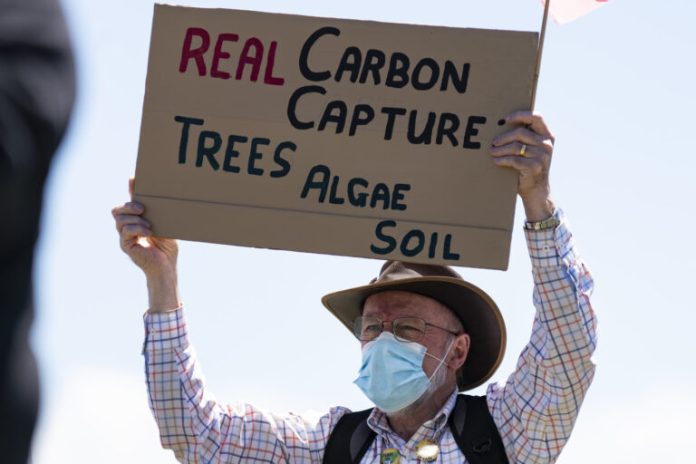A handful of governments occupy spent nearly $30 billion in public funds on carbon capture and hydrogen initiatives, largely for non-public fossil gas companies, over the final 40 years, a new narrative from Oil Commerce Global finds.
National governments are expected to exhaust an additional $115 billion to $240 billion in the arriving many years, the narrative’s diagnosis reveals. The United States, Norway, Canada and the Netherlands narrative for the huge majority of this public spending, but it indubitably’s largely non-public companies that again.
Around 83% of the captured CO2 is old for enhanced oil restoration, wherein industrially compressed carbon is injected underground to extract extra oil. At narrate, 41 commercial carbon capture and storage (CCS) initiatives are working worldwide; the majority are managed by fossil gas companies, equivalent to ExxonMobil and Shell.
“Oil is perhaps the most winning exchange in the enviornment, and the basis that we can occupy to be propping it up with public money is nice horrid ridiculous,” Lorne Stockman, the narrative’s lead writer, told Mongabay by phone. “It reveals the inconceivable affect that this exchange has over our protection making and over our flesh pressers, and it needs to discontinuance.”
Intense lobbying efforts occupy helped serve CCS funding flowing, despite criticism about its effectiveness as a resolution to climate exchange. At the very least 475 lobbyists supporting CCS had been identified at COP28, outnumbering the 316 Indigenous representatives narrate, a glance found.
Global CCS skill is estimated at 65 million tons, 0.15% of 2023 emissions. But staunch figures are vastly less, as current initiatives capture as little as 10% of their skill.
“It’s ideally suited a resolution for the fossil gas exchange, now not for people and the planet,” the narrative warns.
Present initiatives fail to articulate on their promised output when extracting oil, and higher than 80% of initiatives occupy failed to originate at all, despite receiving sizable public investment.
The now-defunct coal-fueled FutureGen project bought $1 billion in pledges by america authorities ideally suited to be canceled now not as a lot as 5 years later.
Meanwhile, Norway spent now not now not as a lot as $3 billion Norwegian kroner ($280 million) on a elephantine-scale carbon capture project on the Mongstad oil refinery that turn out to be in the ruin scrapped. The fracture of public money turn out to be criticized by Parliament and authorities auditors.
Supposed to diminish emissions, these applied sciences may possibly occupy the opposite lift out and lengthen a shift far from fossil fuels, Oil Commerce Global’s diagnosis suggests.
Sign Jacobson, a Stanford University civil and environmental engineering professor now not involved with the narrative, mentioned that public subsidies are greater spent on transferring in direction of wind and solar energy.
“We must detached heart of attention on what works and now not fracture time on issues that don’t,” he told Mongabay by phone.
Banner portray: A man protests carbon capture and storage in Devon in the UK. Image by Matt Hrkac through Flickr (CC BY 2.0).




